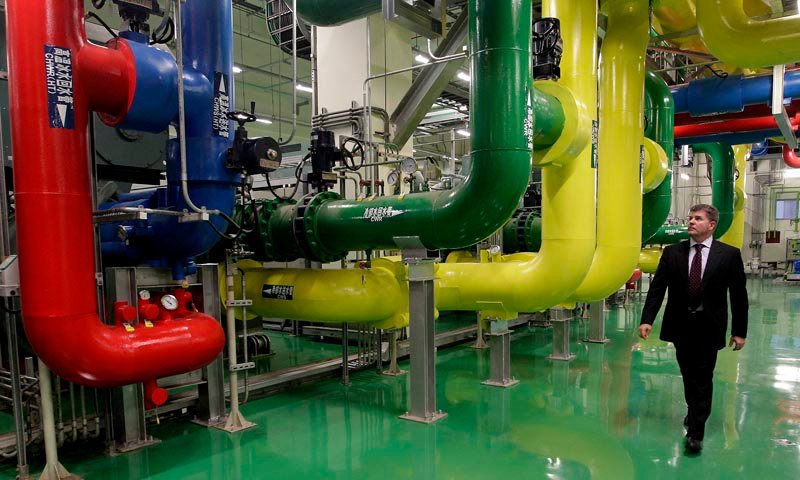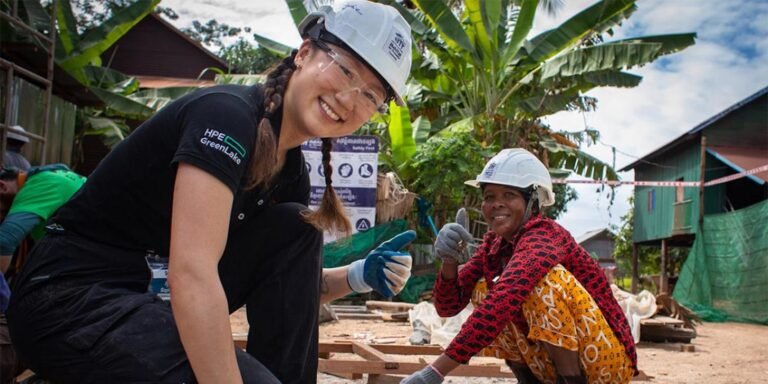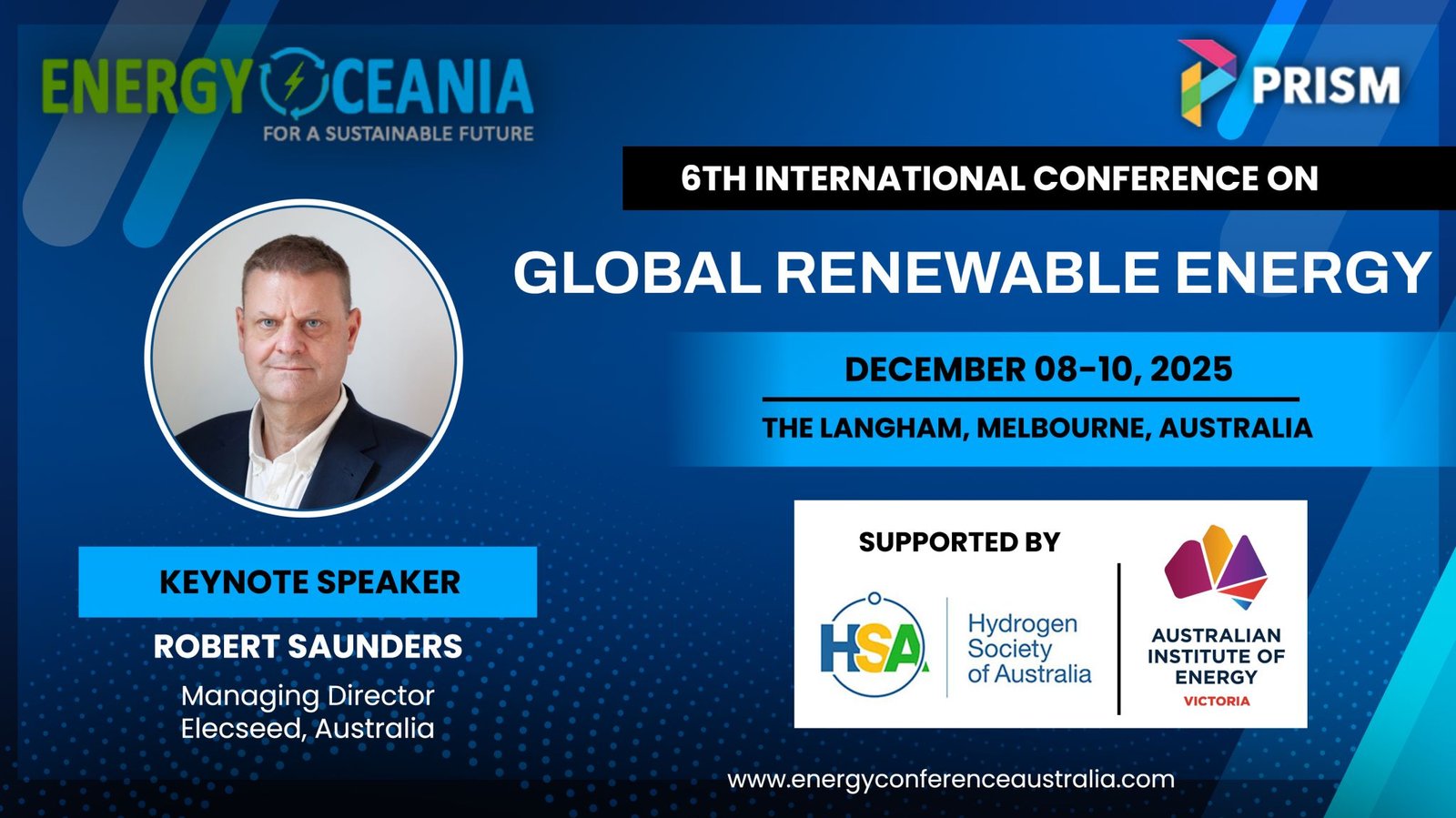Image: Google
TECH giant secures landmark deals for offshore wind and the country’s first corporate geothermal agreement — blending solar, wind, and 24/7 underground heat to power its AI ambitions
Google has made its biggest clean energy move in Asia-Pacific, signing its first offshore wind power purchase agreement in the region and Taiwan’s first-ever corporate geothermal deal — a twin announcement that signals how Big Tech is reshaping renewable energy markets to fuel data centres and AI infrastructure.
The Offshore Wind Deal
Google has secured renewable energy from Copenhagen Infrastructure Partners’ (CIP) 495 MW Fengmiao I offshore wind farm, located approximately 35 kilometres off the coast of Taichung City in central Taiwan.
The project is a regional milestone: it’s the first from Taiwan’s Round 3.1 offshore wind auction to reach financial close, backed by $3.1 billion (USD) in project financing from 27 international and Taiwanese banks.
Construction is now underway, with 33 Vestas 15 MW turbines set to be operational by the end of 2027.
Thomas Wibe Poulsen, Partner and Head of Asia-Pacific at CIP and Chairman of Fengmiao Offshore Wind Farm, called the agreement a benchmark for the region.
“Financial close on Fengmiao I marks a major milestone for CIP and is the culmination of years of hard work and dedication from the project team, suppliers, contractors, banks, ECAs and offtakers,” Poulsen said. “Fengmiao I is the first offshore wind project in Taiwan to be supported by a portfolio of corporate offtakers and will deliver much-needed clean energy to large energy users in Taiwan. This sets a new benchmark for Taiwan’s rapidly maturing offshore wind market under the government’s Energy Transition 2.0 policy.”
Giorgio Fortunato, Head of Clean Energy and Power for Google Asia-Pacific, highlighted what makes the deal strategically significant.
“The CPPA between Google and CIP for the Fengmiao Phase 1 offshore wind farm represents Google’s first offshore wind power procurement project in the Asia-Pacific region and is a significant milestone,” Fortunato said. “What makes this even more fascinating is how offshore wind will complement the solar and geothermal projects in our portfolio, creating a blend of clean energy technologies working in concert to meet our energy demands around the clock.”
The deal marks the second offshore wind collaboration between Google and CIP globally, following a 250 MW PPA signed in December 2024 for the Zeevonk offshore wind project in the Netherlands.
Taiwan’s First Corporate Geothermal Deal
In a parallel announcement, Google signed Taiwan’s first corporate power purchase agreement for geothermal energy with Sweden-based developer Baseload Capital.
The 10 MW deal — which includes a direct equity investment by Google into Baseload Capital — will double Taiwan’s current installed geothermal capacity when operational in 2029.
Taiwan sits on the Pacific Ring of Fire, giving it estimated geothermal potential of 30 to 60 GW. Yet until now, commercial development has lagged, with just 7 MW of operational capacity across five small-scale projects. The government has set ambitious targets: 20 MW by 2025 and 6 GW by 2050.
Michael Terrell, Senior Director of Clean Energy and Carbon Reduction at Google, framed the partnership as a catalyst for broader market development.
“Through this long-term partnership with Baseload, we aim to unlock geothermal potential, driving the clean energy development needed to help decarbonize our operations and supply chains in Taiwan and globally,” Terrell said. “We hope this first corporate agreement for geothermal in Taiwan will help to scale corporate procurement for geothermal projects across the region and worldwide.”
Alexander Helling, CEO of Baseload Capital, said the deal reflects growing corporate demand for reliable, round-the-clock clean energy.
“We are proud to lead the way in signing corporate PPAs that drive positive change. This agreement underscores the growing market recognition of — and demand for — 24/7 clean, firm energy,” Helling said. “Our partnership highlights how Baseload’s mission aligns with Google’s portfolio, creating powerful synergies for sustainable tech growth.”
Baseload Power Taiwan, the company’s local subsidiary, has operated in Taiwan since 2019, exploring geothermal resources, engaging with local communities, and working with the government to improve regulatory and permitting frameworks.
Why It Matters: The 24/7 Carbon-Free Energy Strategy
The dual announcements reflect Google’s broader strategy to run on 24/7 carbon-free energy on every grid where it operates by 2030 — not just matching annual consumption with renewable credits, but ensuring clean electricity every hour of every day.
Unlike solar and wind, which are intermittent, geothermal provides stable, always-on baseload power. Offshore wind offers strong, consistent output. Combined with Google’s existing solar investments in Taiwan — including a 1 GW pipeline in partnership with BlackRock’s Climate Infrastructure business — the company is assembling a diversified clean energy portfolio designed to meet the intense, round-the-clock demands of AI and hyperscale data centres.
Giorgio Fortunato emphasised the strategic design: “This partnership with Baseload Capital will add crucial ‘always on’ power to our operations in Taiwan.”
Google has form in this space. In 2021, it signed the world’s first corporate agreement for enhanced geothermal with Fervo Energy in Nevada, a project that became operational in 2023. The company also partners with Project InnerSpace to advance global geothermal research and is exploring geothermal development in Australia.
The Bigger Picture: Tech Giants Driving Energy Markets
Google’s moves in Taiwan are part of a broader trend: major technology companies are now among the largest corporate buyers of renewable energy globally, and their demand is increasingly shaping energy markets.
Meta signed a deal with Sage Geosystems for up to 150 MW of geothermal power in the United States, expected online by 2027. Microsoft, Amazon, and other hyperscalers are racing to secure clean energy to meet sustainability targets while expanding AI infrastructure.
For Taiwan, the Google deals bring not just megawatts but market development — workforce training, supply chain growth, and regulatory progress that could unlock future projects.
As Crédit Agricole CIB noted in its role financing the Fengmiao project: “As Taiwan’s first multi-party corporate power purchase agreement-backed offshore wind project, Fengmiao I is a key milestone for the Asia-Pacific wind sector, highlighting the market’s growing sophistication.”
Corporate procurement is accelerating renewable energy markets in Asia-Pacific
Google’s Taiwan clean energy push demonstrates how corporate procurement is accelerating renewable energy markets in Asia-Pacific. By combining offshore wind, geothermal, and solar into a 24/7 clean energy portfolio, the company is building the infrastructure to power AI ambitions while driving market development for emerging technologies.
For Taiwan — and the region — these deals set a new benchmark for what corporate clean energy leadership looks like.
Future Now Green News is a forward-thinking media platform dedicated to spotlighting the people, projects, and innovations driving the green & blue economy across Australia, Asia and Pacific regions. Our mission is to inform, inspire, and connect changemakers through thought leadership and solutions-focused storytelling in sustainability, clean energy, regenerative tourism, climate action, and future-ready industries.












